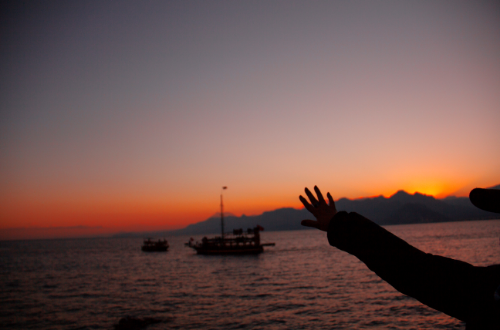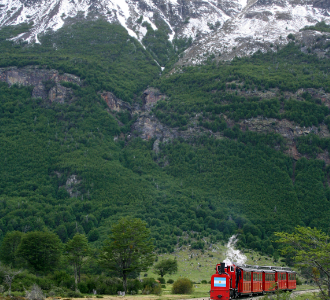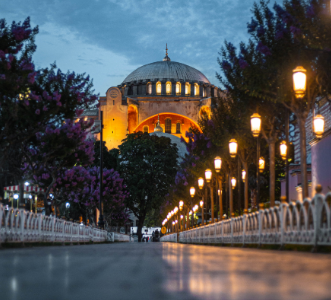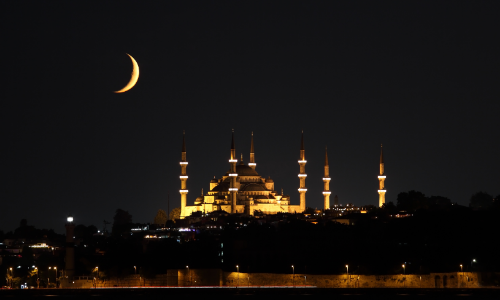The sky had darkened, and the streetlights had started to illuminate the streets. When you looked out of the window, it seemed that the lamp down the road was malfunctioning. It blinked on and off as if winking occasionally. The little girl’s dormitory room was at the end of a long corridor on the right. The faintly sung song that reached her ears from inside the room echoed in the corners of her heart, flowing like waves and streaming out of her eyes!
Separation, separation, oh, separation
More serious than any affliction, oh, separation[1]
What could a child of merely 12 years understand about “separation”? At most, she could break down the word into its syllables! She couldn’t use it in a sentence in the past tense or the future tense! However, separation had already become a thin, stony, and curved arch around the little girl’s delicate waist.
Certainly, just as seasons separate from each other, life also witnesses moments of separation and reunion. This dilemma has been experienced since the time of the Prophet Adam, peace be upon him; facing the pain of separation while feeling the sweet excitement of reunion. Every separation marks the end of a beginning, and every reunion opens the door to a new journey.
Sometimes, separation is like a farewell where eyes move away from each other. The heart leaves a city surrounded by dilapidated walls, bidding farewell to the past with footsteps echoing in the streets filled with memories. However, unforgettable memories remain as colorful flowers in the garden of the heart, never fading. Sometimes, the sorrow of separation is carried throughout one’s lifetime with the marks it leaves on the heart. Here, what matters is why a person embarks on journeys like Majnun, and what they do it for.
As the little girl looked across the window from the school dormitory, she saw the lights of another country, as if she could catch them in her palms. Ordubad, surrounded by mountains on three sides, was perhaps one of the smallest cities in the world. One side was mountains, and the other side was the foothills of Iran. This place had become like the castle where the little girl ruled the world. The surrounding mountains seemed to protect her castle. The school and dormitory buildings were like a purple violet that had bloomed among the mountains and fields. The color and stance of the buildings provided a sense of security, as if they were spreading their wings over this lonely city…
When the weekend came, the little girl would run to her family with joy. The beauty of reunion is a meeting blended with longing. It is the station of indescribable smiles when you embrace your parents, your child, your beloved, and the land where you were born, refreshing your heart.
Separation and reunion are like an equation where seemingly opposite emotions complement each other. Separation is a teacher; it educates people in patience and endurance. Reunion is a reward; it is a treasure reached at the end of longing. Separation questions the depths of love, while reunion shows how powerful love can be.
In our literature, this dilemma has been explored for centuries, and poets and writers have poured the essence of separation and reunion onto the pages. Sometimes, it appears at a romantic turning point in a love story, sometimes on the brink of longing for the Divine, and sometimes intertwined with life itself. When hearts burn with the pain of separation and find the remedy for reunion, the whole world starts to revolve around them. Just as Mevlana expressed it as “shab-e arus” (the night of reunion with the beloved; wedding night), Bediüzzaman also describes it as follows:
“O people, do not worry or think that you are going to extinction, non-existence, nothingness, darkness, oblivion, decay, and dissolution. In fact, you are going to permanence, eternal existence, and the world of His Light. You are returning to your true Owner, to the Eternal Sovereign’s Seat. You will rest in the sphere of unity and not drown in multiplicity. You are bound for union and not separation.”[2]
As the little girl grew, she began to understand. Now, for her, separation was a silent farewell, as quiet as the wings of a bird flapping deep within the forest. Each flap carried memories of the past, and as they got lost in the beauty of the forest, the trees bowed to each other with melancholy, and the leaves whispered the song of separation in the gentle breeze, bidding the little girl farewell from this school. Although the little girl now knew all the synonyms for the word “separation,” the ache in her heart remained the same. The friend of hearts, Karacaoğlan,[3] has shared in our grief by saying, “They measured separation with death / Separation weighed fifty dirhams too much.”
Human life involves the realities of separation and reunion, and these experiences can enrich a person’s spiritual journey and help them grasp the deeper meaning of life. While separation teaches patience and endurance, reunion brings joy and happiness. If a person can strike a balance, they can cherish every moment brought by separation and reunion, learn from them, and embark on the path towards Divine serenity.
[1] Ayrılık (meaning “Separation”) is an Azerbaijani folk song with lyrics by Farhad Ebrahimi and music composed by Ali Salimi in 1957. https://en.wikipedia.org/wiki/Ayrılıq
[2] Bediüzzaman Said Nursi, The Letters, New Jersey: The Light, 2014, p. 245.
[3] He was a 17th-century Anatolian Turkish folk poet.




